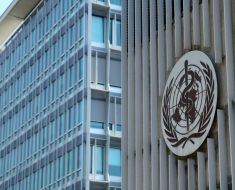
A new study suggests that despite cannabis being legal in certain jurisdictions, such as Canada and Uruguay and 24 U.S. states, restrictions imposed by the international control of drugs and finance mean it is often not available.
Analysis from Dr. Rachel Barry, a public health expert based in the University of Bath’s Tobacco Control Research Group finds that despite the newfound legality of cannabis production and sale, major banks have refused to offer financial services to producers and suppliers.
This is because the offer of financial services to cannabis-related businesses places banks at risk of money laundering, which carries significant legal, financial, and reputational consequences for those that process the sale of an illegal substance in most other jurisdictions in the world.
In the U.S., for example, while cannabis is currently legal in some states, it remains illegal under U.S. federal drug laws via the U.S. Controlled Substances Act in-line with the U.S. government’s international obligations under the UN drug conventions.
The new research, published in the journal Global Public Health, focuses on the experiences of Uruguay, which following landmark legislation in 2013 became the first country to comprehensively regulate the legal production, distribution, and sale of cannabis.
Passage of Uruguay’s cannabis regulation represented a seminal moment in international drugs policy and since has been internationally recognized for its innovation and leadership, and invariably referred to as a “model” for legislation and health governance.
The latest analysis highlights challenges to implement the legislation arising from tensions with rules governing international finance, findings that will have wider significance to policymakers considering similar reforms.
Dr. Barry from the University of Bath’s Department for Health explains, “While much has been said about Uruguay’s cannabis regulation, very little attention has been paid to the significance of international tensions in understanding challenges to develop and implement the cannabis supply system.
“This research brings to light the immense power and influence of international banks to constrain national actions, which likely will have relevance for other jurisdictions seeking to liberalize commercial sale of recreational cannabis.”
According to the study, the most significant and unexpected constraint on Uruguay’s ability to implement commercial sales was the 2001 U.S. Patriot Act. This was unanticipated because Uruguay is not legally obligated to comply with the U.S. government’s national policies, unlike its international obligations under the UN drug conventions.
Indeed, Uruguayan regulators and advocates of reform, who took part in the study as interview participants, told Dr. Barry that they had not expected the power of international banks to be as serious and rapid to the degree that it was:
“The problem with the banks is the 2001 [U.S.] Patriot Act, which makes it so that you must ensure that the funds do not come from clandestine gambling, human trafficking, arms trafficking, drug trafficking. However, we never thought that this would be considered drug trafficking. We did not think that within a country that our local banks, more than anything, we did not think that the U.S. Treasury Department, Citibank or Bank of America were going to scare Uruguayan banks to the point that they would not even process transactions for hemp, which is legal in about a dozen other places in the world.”
Dr. Barry hopes her analysis can help inform policy and practice in countries where cannabis legalization is now being considered. Since major banks have been reluctant to offer financial services to cannabis producers and retailers, one policy option that has been put forward by some policymakers and advocates of reform has been for cannabis-related businesses to operate using cash.
However, an industry that is heavily reliant on cash is not only impractical from a business perspective but may be unfeasible due to tensions with other international commitments like financial inclusion.
In Uruguay, for example, policymakers passed national financial inclusion legislation in 2015, requiring that all companies conduct business, including payment of salaries and wages, through a formal financial institution or electronic monetary system. Recently, there have been significant delays in the Dutch government’s pilot launch of a cannabis program because cannabis producers faced similar challenges in accessing lending and banking services.
“A viable workaround of these banking challenges may be for policymakers to consider other ways of making cannabis legally available, including home growing and cannabis clubs. Neither require credit card payments, therefore avoiding some of the challenges associated with commercial sales, as demonstrated in this analysis,” Dr. Barry adds.
Source: Read Full Article





